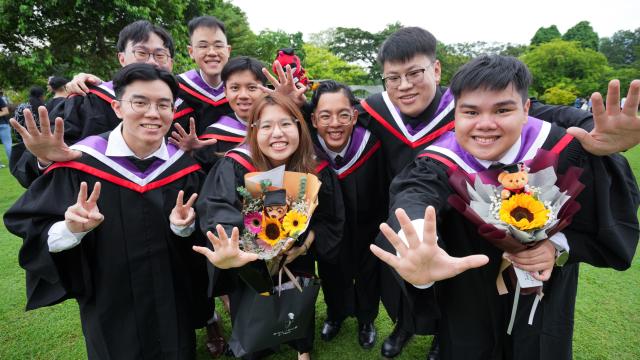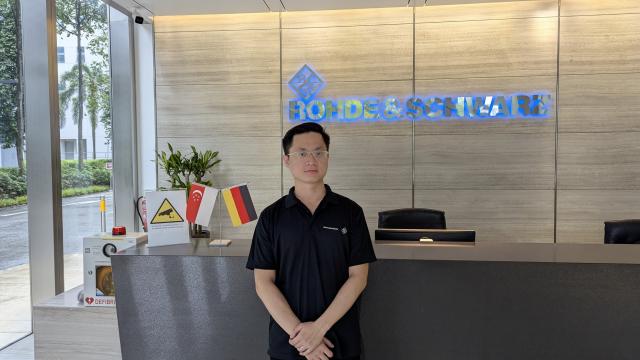
The latest study on audit committees (ACs) found that listed companies in Singapore have made progress in adopting corporate governance best practices. To build on the progress made, the study also highlighted areas for further improvement.
Background
Audit committees play an important role in ensuring the integrity of companies’ financial reporting. By adopting the best practices in corporate governance, the ACs will enhance the governance and oversight of the company’s corporate reporting function.
The Accounting and Corporate Regulatory Authority (ACRA), the Institute of Singapore Chartered Accountants (ISCA), Singapore Exchange Regulation (SGX RegCo) and Singapore Institute of Directors (SID) have commissioned the Singapore Institute of Technology (SIT) to conduct a study on the profile of ACs of listed companies in Singapore. There were similar studies[1] conducted in 2009, 2011 and 2015.
The 2020 study covers the ACs of 650 listed companies in Singapore comprising 1,539 individuals serving as AC chairmen and members. Led by Professor Ho Yew Kee, the study team gathered data from the annual reports published by the companies for 2019 and information provided by DC Frontiers Pte Ltd. The study team also surveyed 126 respondents and held focus group discussions and conducted individual interviews to gain further insights on the role of ACs.
Key Findings
The 2020 study presents an improvement in companies’ practices to raise the effectiveness of ACs. Some areas would benefit from further strengthening. The key findings include:
1. The proportions of AC chairmen and members who held four or more AC positions have dropped to 4% and 1% respectively, as compared to 5% and 2% when the study was last conducted in 2015. A majority of 1,539 unique individuals who served in ACs sat on one AC, either as a chairman (76%) or a member (84%). Holding fewer AC positions allows individuals to dedicate time to discharge their oversight role;
2. The number of executive directors in ACs had dropped to 24 in 2020, from 38 in 2015 study. This represents progress towards the standard under the Singapore Code of Corporate Governance (2018) (the CG Code) which recommends for all AC members to be non-executive;
3. The proportion of women directors in ACs increased to 11% in 2020 from 8% in 2015. While gender is one aspect of diversity, listed companies are also encouraged to consider other characteristics such as experience, age and social background to enhance board/AC diversity in line with the principles of the CG Code;
4. 33% of AC chairmen and 26% of AC members have served in the same ACs for more than 10 years, increasing from 21% and 18% in the previous study in 2015. To strengthen the diversity and independence of their boards, come 1 January 2022, directors who have served more than nine years will be deemed as non-independent under the SGX Listing Rules, unless their appointments have been approved via a two-tier voting process of shareholders. Listed companies are encouraged to start preparing for the new requirements now;
5. 94% of the companies have at least one financially-trained[3] member in their ACs, comparable to the previous study in 2015. The CG Code recommends at least two members, including the AC Chairman, to be financially-trained;
6. A vast majority (98%) of the ACs had the requisite of minimum three AC members, same as the previous study in 2015. The Companies Act and CG Code require at least three members in the AC;
7. Almost half (48%) of the survey respondents ranked “going concern and liquidity” as their top concern, alongside impairment of asset values and internal controls. Their areas of concern are consistent with ACRA’s guidance[2] on the proposed areas of review by directors for 2020 financial statements; and
8. 90% of the survey respondents said that issues covered by ACs had expanded over time, to include areas such as risk management and cybersecurity. 78% of the survey respondents also indicated that ensuring the integrity of the financial reporting had required 10% to 50% more time due to the COVID-19 pandemic.
The findings in the report are encouraging as they show that ACs are stepping up their game. Together with the new listing rules on the appointment of a second auditor and the mandating of Singapore-registered auditors, this will support the effective functioning of Singapore’s capital market and further enhance confidence and trust.
The 2020 study on the profile of audit committees of listed companies in Singapore is available at www.acra.gov.sg.
Annex A - Quotes from the organisations involved in the 2020 study
Annex B - Study on the profile of audit committees of listed companies in Singapore 2020
[1] The first three studies conducted in 2009, 2011 and 2015 can be found at https://isca.org.sg/tkc/cogov/audit-committees/audit-committees/2016/june/isca-audit-committee-study-report-2015/
[2] Issued in Dec 2020, ACRA’s Financial Reporting Practice Guidance can be found at www.acra.gov.sg
[3] Defined as individual with recent and relevant accounting or related financial management expertise or experience, consistent with the Singapore Code of Corporate Governance (2018)
The Singapore Institute of Technology (SIT) is Singapore’s University of Applied Learning, offering applied degree programmes targeted at growth sectors of the economy. With a mission to nurture and develop individuals who impact society in meaningful ways, SIT aims to be a leader in innovative learning by integrating learning, industry and community.
The university’s unique pedagogy integrates work and study by incorporating applied research for students to work on real industry problems and creating solutions that meet industry needs. SIT also advocates the work-learn continuum, which places an emphasis on upskilling and lifelong learning
For more information, visit www.SingaporeTech.edu.sg.















![[FA] SIT One SITizen Alumni Initiative_Web banner_1244px x 688px.jpg](/sites/default/files/2024-12/%5BFA%5D%20%20SIT%20One%20SITizen%20Alumni%20Initiative_Web%20banner_1244px%20x%20688px.jpg)


